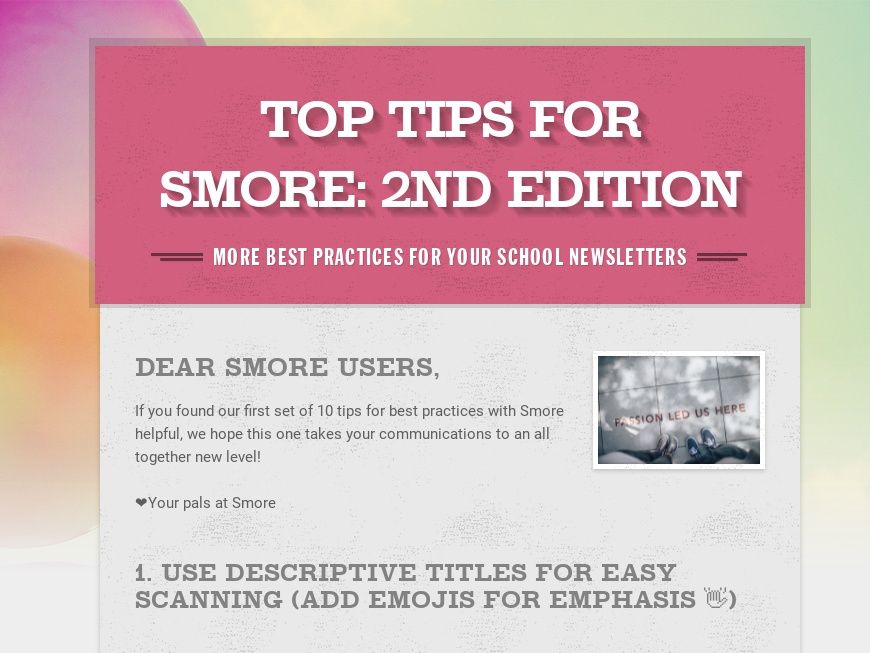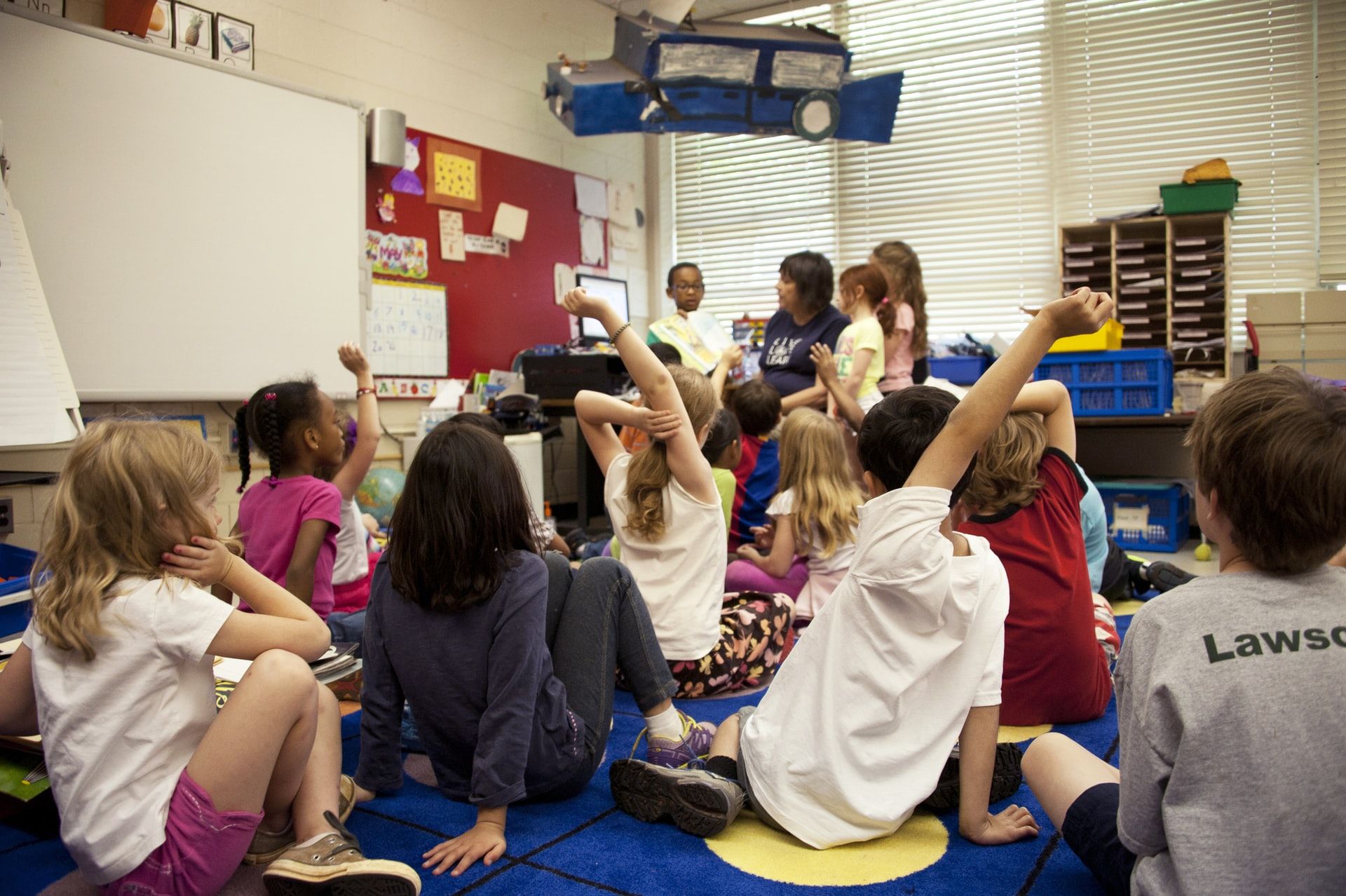It’s Friday, 3pm, and all you want to do is teleport home.
You can’t send classroom updates on Friday afternoon when you’re fried. Sunday evening when you’re having your pre-Monday meltdown is also a bad idea.
“I’ll get to it next week. I swear.”
But next week is no good, because the more you communicate with parents ➡️ the more they support your efforts ➡️ the more success your students achieve.
So let’s kick aside the mental barriers to communication.

- Don’t start from scratch. Duplicate this template (or this one if you’re an elementary teacher). Fill in your info. Lather, rinse, repeat.
- Keep your stash of photos replenished: (a) Look over your plan book for the week & make an actual -- not mental -- note of when to take candids of kids working, so that you don’t forget in the moment (b) When you put up a new display of student work, take pics!
See how simple? That was only two bullet points!

BONUS: Now let’s talk about forming a communication habit
We’re going to use a few simple productivity strategies:
- Schedule writing your update into your plan book or your digital calendar, every week, same time.
- Choose a time when you’re relatively fresh; meaning not after school. Choose a prep period that’s early in the day.
- Don’t start from scratch. Duplicate, duplicate, duplicate. In fact, if you duplicate the template as soon as you complete it, you’ve already got a head start on the next one.
- Choose something to enjoy while — and only while — you put the template together, a favorite snack or a special playlist. This is called temptation bundling. It will make it MUCH more pleasurable to communicate with parents, I swear.
If you want more tips, you can find them here. Meantime, you got this! 👊🏽




